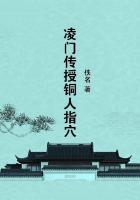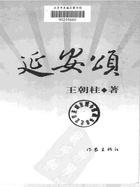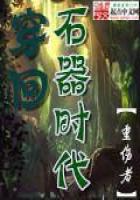The Peasant War in Suabia and Franconia F rom the moment when Luther's declaration of war against the Catholic hierarchy set into motion all the opposition elements of Germany, not a year passed without the peasants coming forth with their demands.
Between 1518 and 1523, one local revolt followed another in the Black Forest and in upper Suabia.Beginning in the Spring of 1524, these revolts assumed a systematic character.In April of that year, the peasants of the Abbey of Marchthal refused serf labour and duties; in May of the same year, the peasants of St.Blasien refused serf payments; in June, the peasants of Steinheim near Memmingen declared they would pay neither the tithe nor other duties; in July and August, the peasants of Thurgau rebelled and were quieted partly through the mediation of Zurich, partly through the brutality of the confederacy which executed many of them.Finally, a decisive uprising took place in the Margraviate of Stuehlingen, which may be looked upon as the real beginning of the Peasant War.
The peasants of Stuehlingen suddenly refused deliveries to the Landgrave and assembled in strong numbers.On October 24, 1524, they moved towards Waldshut under Hans Mueller of Bulgenbach.Here they organised an evangelical fraternity, jointly with the city middle-class.The latter joined the Organisation the more willingly since they were in conflict with the government of Upper Austria over the religious persecutions of their preacher, Balthaser Hubmaier, a friend and disciple of Thomas Muenzer's.
A union tax of three kreutzer weekly was imposed.It was an enormous sum for the value of money of that time.Emissaries were sent out to Alsace, to the Moselle, to the entire Upper Rhine and to Franconia, to bring peasants everywhere into the Union.The aims of the Union were proclaimed as follows:
abolition of feudal power; destruction of all castles and monasteries;elimination of all masters outside of the emperor.The German tricolour was the banner of the Union.
The uprising spread rapidly over the entire territory of present-day Baden.A panic seized the nobility of Upper Suabia, whose military forces were all engaged in Italy, in a war against Francis I of France.Nothing remained for it but to gain time by protracted negotiations, meanwhile collecting money and recruiting troops, pending the moment when it would feel strong enough to punish the peasants for their audacity by "burning and scorching, plundering and murdering." From that moment there began that systematic betrayal, that consistent recourse to perfidiousness and secret malice, which distinguished the nobility and the princes throughout the entire Peasant War, and which was their strongest weapon against decentralised peasants.The Suabian Union, comprising the princes, the nobility, and the imperial cities of Southwest Germany, tried conciliatory measures without guaranteeing the peasants real concessions.The latter continued their movement.Hans Mueller of Bulgenbach marched, from September 30 to the middle of October, through the Black Forest up to Urach and Furtwangen, increased his troops to 3,500 and took a position near Eratingen, not far from Stuehlingen.The nobility bad no more than 1,700 men at their disposal, and even those were divided.It had to agree to an armistice, which was concluded in the camp at Eratingen.The peasants were promised a peaceful agreement, either directly between the interested parties, or by means of an arbitrator, and an investigation of complaints by the court at Stockach.
The troops of both the nobility and the peasants were dispersed.
The peasants formulated sixteen articles, the acceptance of which war, to be demanded of the court at Stockach.The articles were very moderate.
They included abolition of the hunting right, of serf labour, of excessive taxes and master privileges in general, protection against wilful arrests and against partisan courts.The peasants' demands went no farther.
Nevertheless, immediately after the peasants went home, the nobility demanded continuation of all contested services pending the court decision.
The peasants refused, advising the masters to go to the court.Thus the conflict was renewed, the peasants reassembled, and the princes and masters once again concentrated their troops.This time the movement spread far over the Breisgau and deep into Wuerttemberg.The troops under Georg Truchsess of Waldburg, the Alba of the Peasant War, observed the peasants' movements, attacked individual reinforcements, but did not dare to attack the main force.Georg Truchsess negotiated with the peasant chiefs, and here and there he effected agreements.
By the end of December, proceedings began before the court at Stockach.The peasants protested against the court, composed entirely of nobles.In reply, an imperial edict to this effect was read.The proceedings lagged, while the nobility, the princes and the Suabian Union authorities were arming themselves.Archduke Ferdinand who dominated, besides hereditary lands then still belonging to Austria, also Wuerttemberg, the Black Forest and Southern Alsace, ordered the greatest severity against the rebellious peasants.They were to be captured, mercilessly tortured and killed; they were to be exterminated in the most expeditious manner; their possessions to be burned and devastated, and their wives and children driven from the land.It was in that way that the princes and masters kept the armistice, and this is what passed for amicable arbitration and investigation of grievances.
Archduke Ferdinand, to whom the house of Welser of Augsburg advanced money, armed himself very carefully.The Suabian Union ordered a special tax, and a contingent of troops to be called in three installments.















